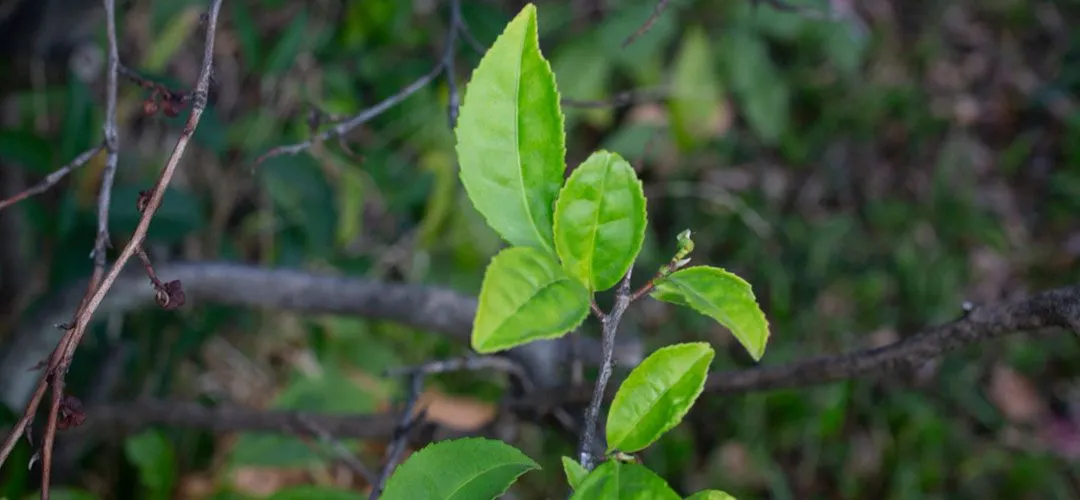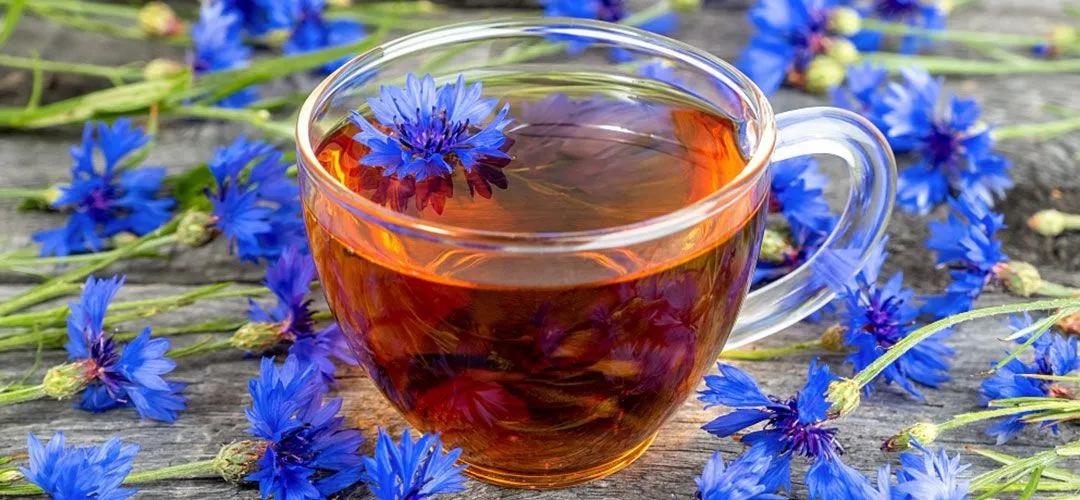Originated in China, Oolong tea is a fragrant hot beverage with amazing health benefits. It is a wonderful option for habitual tea drinkers for its exceptional match of taste and long-term health benefits. If you are trying some new types of herbal teas anytime sooner, we recommend you go for this beverage.
It combines the goodness of several dark and green teas owing to a high concentration of anti-oxidants and catechins. Having two cups of it regularly would help you have a better metabolism and this helps you lose weight faster. Strangely enough, this tea accounts for only 2% of world tea consumption!
By drinking two cups of this tea every day, you might lose weight faster and control diabetes. It works best on those people who have an active lifestyle and are willing to stretch themselves through regular workouts.
It is important to know that Oolong tea is neither a black tea nor a green tea. It sits somewhere between the extremes of black tea and green tea because it is only partially oxidized. This is much unlike black tea that is completely oxidized and sun-dried whereas green tea is hardly oxidized, let alone sun drying it.
This herbal tea is available in the following variants:
1. Fujian
a. Wuyi mountains
i. Da Hong Pao ("Big Red Robe")
ii. Shui Jin Gui ("Golden Water Turtle")
iii. Tieluohan ("Iron Arhat")
iv. Bai Jiguan ("White Cockscomb")
v. Rougui ("Cassia")
vi. Shui Xian ("Narcissus")
b. Anxi
i. Tieguanyin ("Iron Goddess of Mercy")
ii. Huangjin Gui ("Golden Cassia" or "Golden Osmanthus")
2. Guangdong
a. Single Bush Dancong ("Phoenix oolong")
3. Taiwan
a. Dongding ("Frozen Summit" or "Ice Peak")
b. Dongfang Meiren ("Oriental Beauty")
c. Alishan oolong:
d. Lishan oolong
e. Baozhong
f. Jin Xuan
g. Black Oolong
h. Tieguanyin
4. Darjeeling oolong
5. Assam smoked oolong
6. Vietnamese oolong
The above varieties are listed on Wikipedia.
Did you know? This herbal tea incurs a greater cost of preparation because the manufacturers apply better measures to preserve the goodness of the polyphenols and catechins in the tea leaves. If you have purchased this tea from a reputed brand, you can be reasonably sure of its qualities.
Oolong tea is a traditional Chinese tea. It is prepared from the leaves of the Camellia sinensis plant, the same plant that’s used to prepare green tea. Mostly consumed in China and Taiwan, this hot beverage offers several health benefits related to the digestive and nervous systems and can be prepared quickly.
Did you know? This tea has no calories, fats, carbohydrates, or proteins when taken unsweetened.
Camellia sinensis is a common tea plant found in Southeast Asia. Its leaves are used to make various types of herbal and green teas through different processes of oxidation. It provides several health- and skin-related benefits with anti-aging, anti-inflammatory, antibacterial, and astringent properties.
Drinking teas made of this tea plant is one of the smarter ways to keep the skin soft and shiny for longer durations. One may also consider its benefits for acne treatments and the removal of excess oils (and toxic elements) from the skin over a while. Its leaf extracts can also be applied directly to the skin.
Tip: Its leaves are partially fermented and partially oxidized, as against green tea leaves that are neither fermented nor oxidized. This difference gives its characteristic fragrant taste and high medicinal value.
This tea contains flavonoids, caffeine, fluoride, and theanine. Next up is the high concentration of catechins, the phenolic compounds that help it prevent heart disease, cancer, obesity, diabetes, oxidative stress, and even cognitive decline.
Serving Size: 1 serving, 100 g
Nutrient |
Amount |
Water |
99.8 g |
Energy |
1 Kcal |
Carbohydrate |
0.1 g |
Minerals |
Amount |
Calcium, Ca |
1 mg |
Iron, Fe |
0 mg |
Magnesium, Mg |
1 mg |
Phosphorus, P |
1 mg |
Potassium, K |
11 mg |
Sodium, Na |
2 mg |
Zinc, Zn |
0.01 mg |
Copper, Cu |
0 mg |
Manganese, Mn |
0.2 mg |
Vitamins |
Amount |
Water-soluble Vitamins |
NA |
Vitamin B3 (Niacin) |
0.04 mg |
Other |
Amount |
Caffeine |
12 mg |
Theobromine |
3 mg |
Why is this tea so expensive?
Oolong tea is rich in vitamins, minerals, and antioxidants. It reduces free radicals in our system and detoxifies our bodies to make our skin radiant. Regularly consuming it can give us a healthy glow and prevent skin diseases. Its relaxing and soothing properties can help you de-stress yourself faster.
We recommend that you drink up to two cups of this beverage every day to get maximum health benefits, though you should also consult your nutritionist for the best results.
Here are some good reasons why you should take to drinking this herbal tea more often:
Teas generally have a bit of caffeine content. But oolong tea has a slightly higher amount than most teas- it is almost as high as black coffee. It means that consuming this tea can help you stay mentally alert, especially on dull mornings or if you have been awake through the night.
Also read: So How Special Is Your Cup of Green Tea or Coffee Today?
Aside from acting as an energy booster, this tea can also aid in boosting your metabolism, causing you to shed those extra pounds. This is due to antioxidants and polyphenols that reduce fat-creating enzymes, thus making this beverage a potent drink for weight loss.
Research shows that consuming the beverage regularly offers a lower risk of contracting cancers. Women suffering from ovarian cancer are often recommended to drink two cups of oolong (or green or black) tea. Drinking tea may save you from chemotherapy and radiation in the long run.
This tea helps in reducing blood sugar, especially for diabetics. You might like to know that drinking it for about a month helps with regulating the body’s sugar levels. However, you should not take it as a substitute for insulin unless advised so by your doctor.
It may also help prevent plaque from accumulating on your teeth and resist cavities, provided you brush your teeth regularly. This herbal beverage may not seem the crowd favorite like Earl Grey, Green, or Black teas but it is a healthy option among teas.
This shouldn't come as a surprise that oolong tea contains caffeine. Though its caffeine content is far less than that of coffee or even green tea, this herbal beverage still contains just the right amount of caffeine to help you get through the day.
Interestingly, the caffeine content in it doesn't over-energize you and therefore helps you skip the jittery effect that’s generally associated with coffee. If you prefer having some coffee before workouts, you may get the same effects with this herbal beverage.
Herbal teas are often good for reducing hypertension. They reduce your blood pressure and blood sugar levels (when drunk unsweetened) and calm your spirits. Unconfirmed research also says that drinking oolong tea every day for a month can cut down the aftereffects of hypertension by as much as 50%.
This tea also has a direct correlation to various heart ailments and issues related to metabolism. You may expect a significant improvement in your health and fitness standards too if you replace your habit of drinking coffee or black tea with this herbal beverage.
Oolong tea can also help you clear out the toxins in your digestive system through your kidneys. This can also have a subtle effect on clearing the skin pores and thus making your skin radiant. Drinking three cups of this herbal tea every day can help you reduce the effect of eczema and atopic dermatitis.
Did you know? You may also get a lot of relief if you choose to bathe in some lukewarm water with oolong teas soaked in it. To do this, you can first drink your tea, heat some water, and then put the strained tea leaves in the hot water.
PS: Here’s a report by the National Center of Biotechnology and National Library of Medicines that tells of what else this tea can help you with.
Yes. A 100 gm serving of oolong tea has 12 mg of caffeine. This is less than a third of what coffee has in the same amount of serving (40 mg per 100 gm). This makes oolong tea a better option to stay awake and sharp instead of coffee and is thus a better option for patients suffering from hypertension and high blood pressure.
Drinking it in excess can cause restlessness, insomnia, an increase in blood pressure, rapid heartbeats, irritable bowel syndrome, etc. You might also experience headaches, nervousness, vomiting, diarrhea, acid reflux, or related issues.
You can get a significant number of benefits from drinking Oolong tea but an overdose can be just as injurious too. Healthcare experts recommend that you do not go above two to three cups of this herbal tea in a day, and it would be best to take it without sugar.

